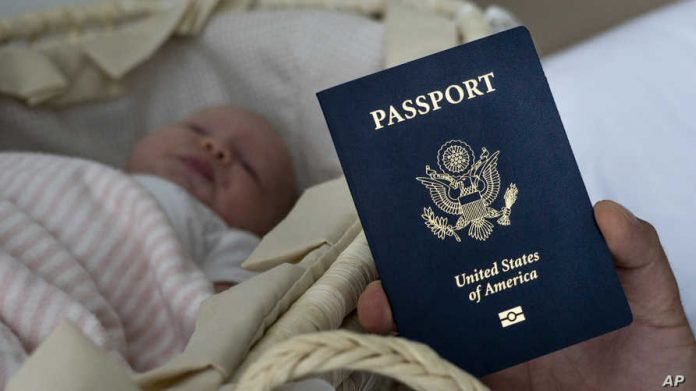
President Donald Trump led government is keen to limit immigration to the United States, as the State Department on Thursday unveiled new rules that could make it more difficult for pregnant foreign nationals to travel to the United States using tourist visas.
According to CNBC, the rules, which will become effective on Friday, is aimed at putting end to “birth tourism,” or the practice of giving birth in the United States in order to obtain U.S. citizenship for the child.
The moves comes as no surprise as President Donald Trump has been particularly critical of birthright citizenship.
According to a statement issued by White House Press Secretary Stephanie Grisham is taken due to security concerns.
The statement read, “Closing this glaring immigration loophole will combat these endemic abuses and ultimately protect the United States from the national security risks created by this practice,”
“It will also defend American taxpayers from having their hard-earned dollars siphoned away to finance the direct and downstream costs associated with birth tourism.
“The integrity of American citizenship must be protected,” she said.
The 14th Amendment to the U.S. Constitution grants citizenship to “all persons born or naturalized in the United States.”
The new rules also tighten the restrictions on traveling to the U.S. to seek medical treatment.
The department said it will deny visas to those seeking medical treatment if they are unable to establish “to the satisfaction of a consular officer” that there exists a legitimate medical reason for treatment and that a practitioner or facility in the U.S. has agreed to provide it.
The visa applicant must also prove that he or she “has the means and intent” to pay for the medical treatment and related expenses, according to the new rules.
![]()









